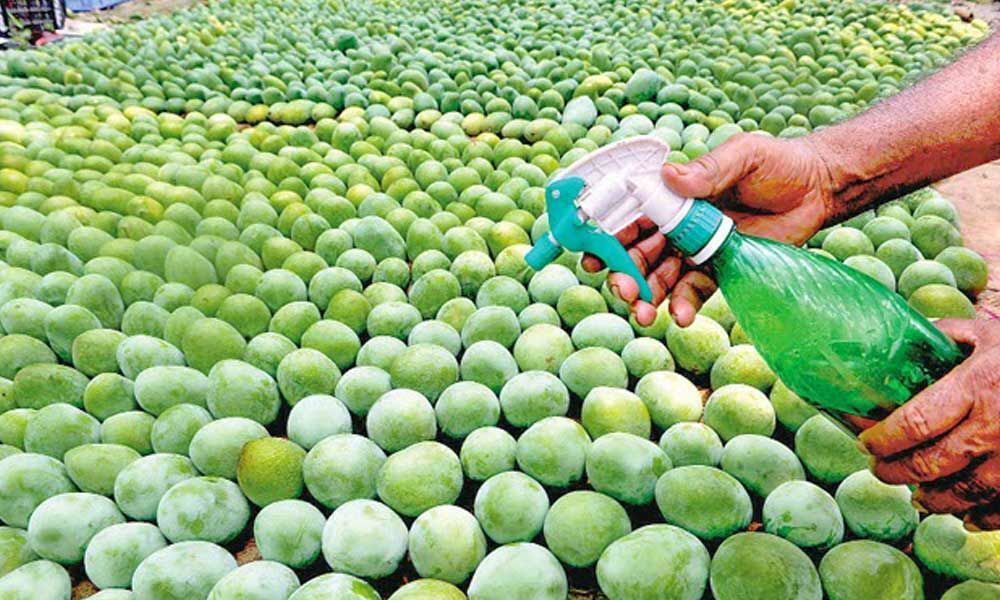Chemically ripening of fruits unabated
The king of fruit has been arriving at the Gaddiannaram Fruit Market since January.
Kothapet: The king of fruit has been arriving at the Gaddiannaram Fruit Market since January.
The directive of the Food Safety and Standards Authority of India (FSSAI) to use ethylene gas for ripening of mangoes is also in place.
However, the traders say that the authorities are yet to establish a mechanism for fruit ripening.
The marketing department is yet to set up 'Ethylene Ripening Chambers.' Ashok Kumar, president of the fruit association at Kothapet, says, "On an average 5 to 10 tonnes of mangoes arrive at the market.
In the coming days, the number of trucks is only going to increase, and there is a need to have a proper mechanism for fruit ripening as per rules."
Bainganpalli, Totapuri and Suvarnarekha are the most common that come to the market.
Currently, the price of the fruit is between Rs 50,000 and Rs 1 lakh per tonne based on the type and quality of the fruit.
Use of carbide as a ripening agent is a punishable offence under the FSSAI Act 2006, as the chemical is carcinogenic, a cancer-causing substance or agent.
Mangoes from districts like Nuziveedu, Krishna, Khammam, Mahboobnagar, Nalagonda, Kurnool, Nandyala, Kadapa, Chittoor, Rajampeta and other places come to the market. Apart from the Telugu states, the mangoes are also imported from the states of Kolar District, Karnataka, Dharmapuri District, Tamil Nadu.
These imported mangoes are usually exported to North India, especially to Delhi and Maharashtra, for the artificial ripening of mangoes.
The process of artificial ripening takes around 4 to 5 days to change the color of the mangoes from raw green to ripened yellow.
The sachets of these chemicals are dropped into the baskets of raw mangoes at the time of exporting them from Hyderabad to other parts of India and during the journey, the mangoes are ripened.
Last year, calcium carbide was used as the chemical to ripen mangoes, which was declared to be harmful.
State Food Laboratory officials, who conducted raids, said they found ethylene powder packets stuffed in the boxes of mangoes for the purpose of ripening them.
When the artificially- ripened mango samples were tested, they found high concentrations of calcium carbide.
Cases were booked where the accused were jailed for about 3 months with the penalty of Rs 10,000.
The president of the fruit association, Ashok Kumar, said, "There are retailers who do not have licenses, yet they come and sell their goods and leave, and the responsible officers are not taking any action."













